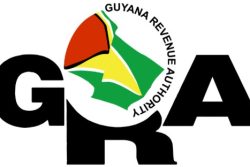Given the passage of the December 21st, 2018 no-confidence motion (NCM) against the David Granger-led APNU+AFC coalition government, former Attorney General Anil Nandlall has filed a fixed date application before the High Court, challenging what he says is Cabinet’s refusal to resign in accordance with constitutional stipulations.
In his urgent application filed against the Attorney General who is listed as respondent, Nandlall is seeking an order compelling the Cabinet, including the President to resign given government’s collapse following the NCM by the vote of a majority of all the elected members of the National Assembly.
Nandlall, (the applicant) is arguing that in accordance with Article 106(6) of the Constitution, Cabinet ought to resign.
That provision states, “The Cabinet including the President shall resign if the Government is defeated by a vote of majority of all the elected members of the National Assembly.”
Meanwhile, Article 106(7) adds; “Notwith-standing its defeat, the Government shall remain in office and shall hold an election within three months, or such longer period as the National Assembly shall by resolution supported by not less than two-thirds of the votes of all the elected members of the National Assembly determine, and shall resign after the President takes the oath of office following the election.”
Nandlall is further asking for, or in the alternative a mandatory order compelling Cabinet and the President to give effect to the resignation of the Cabi-net, including the Presi-dent, which occurred by operation of law, consequent upon the successful NCM.
Additionally, he is seeking a conservatory order or an order restraining Cabi-net and the President from “meeting, making decisions as, or performing the functions of Cabinet,” given government’s defeat on the NCM.
Apart from these reliefs, he wants any further order the Court deems just to grant as well as the award of court costs against the state.
Listing the grounds for his application, Nandlall, a Parliamentarian and former Attorney General (AG) who served under the PPP/C government—now Opposition, noted that he was in the National Assem-bly and voted in support of the Opposition-sponsored NCM tabled by its leader Bharrat Jagdeo.
Following the vote, Nandlall recalled that in consequence thereof, Resolution 101 was then issued by the Clerk of the National Assembly, certifying that the NCM was lawfully and properly passed.
The former AG notes that though an almost nine months have elapsed since passage of the motion, Cabinet “has failed, and or neglected, and or omitted, to resign in accordance with the unambiguous prescription and mandate of Article 106(6) of the Constitution.”
Nandlall in his application says that as an attorney, politician and elected representative of the people of Guyana, he has “a public, parliamentary, poli-tical and constitutional duty to ensure that the laws” are upheld and complied with, “especially by the Executive.”
Nandlall said that it is in the discharge of those duties that he filed the proceedings.
According to the attorney, “Article 106(6) clearly mandates and compels the Cabinet, inclusive of the President, to resign once the government is defeated by a vote of a majority of all the elected members of the National Assembly on a vote of no-confidence.”
Quoting from the ruling of Acting Chief Justice Roxane George-Wiltshire SC, Nandlall pointed out that the judge said “I therefore, find that the Cabinet is not required to resign with all convenient speed, as the resignation under Article 106(6) takes immediate effect following the defeat of the Government on a vote of confidence by a majority of all the elected members of the National Assembly. In this case, Cabinet must be taken to have resigned with effect from the evening of 21 December 2018, and all functions or duties provided in any law to be performed specifically by the Cabinet must have ceased from that time.”
The applicant then noted the Caribbean Court of Justice (CCJ) upholding the decision of the Chief Justice and stating in part that “the National Assem-bly properly passed a motion of no confidence in the government on 21st December 2018; and upon the passage of this motion of no-confidence in the government, the clear
provisions of Article 106 immediately became engaged”.
The government’s position has been that in accordance with Article 106(7) notwithstanding its defeat “the government shall remain in office…and shall resign after the President takes the oath of office following the election.”
While the Opposition camp has also been calling for elections to be held by September 18—three months following the CCJ ruling, the Guyana Elections Commission has said that elections cannot be held by that time.
It had initially said that its current house-to-house registration exercise was a necessary prerequisite to the holding of credible elections, while noting that that registration process would not have been concluding before October 20th.
On Tuesday, however, Chairperson of the Commission, retired Justice Claudette Singh ordered that the exercise be concluded on Saturday so that preparations can be made for a period of claims and objections, in order to facilitate preparations for general elections.
Government had requested that the time for elections be extended by the National Assembly as provided for in Article 106(7). Jagdeo has, however, repeatedly said that the Opposition would not be returning to the House to grant any such extension.
Given passage of the motion, elections ought to have been held by March 21st. This deadline was, however, overtaken by the lengthy litigation pursued by both sides all the way to the CCJ which rendered its ruling on June 18th.
Noting in his application that Jagdeo had written President Granger requesting the resignation of Cabinet, Nandlall in his letter of July 20th called on the Head of State to forthwith issue a proclamation, dissolving Parliament and to fix a date for general and regional elections to be held no later than September 18th, 2019.
In a responding missive from the President which Nandlall has as an exhibit in his application, the President, however, said that he would not be acceding the attorney’s request.
President Granger is quoted in the letter as saying “It is my considered opinion that the Caribbean Court of Justice did not issue orders that I should dissolve the National Assembly, fix a date for General and Regional Elections and that I should resign from the Office of the President.”
The CCJ in consequential orders following its ruling had said that it was not its place to set a date by which elections were to be held or to so direct the President, but that this was rather to be left to the political players.
Noting that it would not get involved in politics, the court, however, said that effect ought to be given to Article 106(6) and (7).
Nandlall in his application to Granger’s responding to Jagdeo noted that the Leader of the Opposition did not request the President to resign from the Office of the President but rather to simply resign as a member and the Chairman of Cabinet.
The applicant said that since then numerous members of the government, inclusive of the Attorney General, have publicly stated that the Cabinet, inclusive of the President, will not resign.
In so doing, Nandlall said that they are continuing to perpetuate a breach of Article 106(6) of the Constitution.
As guardian of the Constitution, Nandlall said that the court has an inherent jurisdiction and a constitutional duty to grant appropriate remedies whenever the Constitution is likely to be contravened, is being contravened, or has been contravened.
Following what later became a controversial passage of the NCM of the night of December 21st, a series of legal challenges were mounted by both government and Opposition with the former arguing that 34 and not 33 votes were required from the 65-member House before the motion could be considered passed.
The Trinidad-based CCJ—Guyana’s final appellate court would however, in a ruling handed down on June 18th, declare that the motion was validly passed with 33 votes.
Government defector Charrandass Persaud had voted in favour of the Opposition-sponsored motion thus tipping the scales in favour of the motion, thus decreasing the 33-member majority government by one.
Government’s position had been that since the half of the house would have been 32.5 that number needed to be rounded to the nearest whole number and one then added, since there “is no such thing as a half member.”
These arguments were, however, thrown out by both the local Supreme Court in a ruling delivered by the Chief Justice, which would later be upheld by the CCJ.







